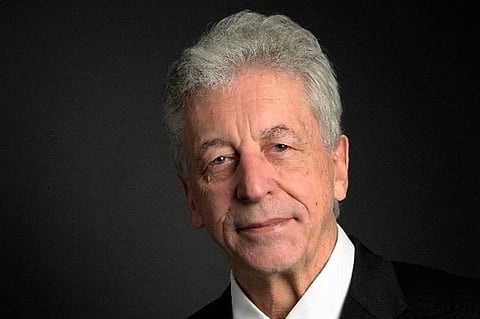Right to work, secure property rights, bold reforms missing in CR recovery plan: Leon Louw
The ambitious plan to put 800,000 jobs in the hands of South Africans detailed by President Cyril Ramaphosa has received mixed reactions. Presented at a joint sitting of parliament last week, the Economic Reconstruction and Recovery Plan tells of government aiming to spend R100bn on infrastructure for the next three years. An amount of R13,8bn has been earmarked for spending by March. An economic growth rate of 3% has also been promised while tourism, manufacturing and the ICT sector is set to get a boost. In his speech, Ramaphosa said those industries would be resuscitated while South Africans would receive a reprieve in the form of low data costs and 190,000 housing units for the poor at a cost of R130bn. Leon Louw, executive director of the Free Market Foundation, gives an in-depth look at how the economic recovery plan falls short. – Bernice Maune.
Ramaphosa's Recovery Plan – the good, the bad, the indifferent and what's needed
By Leon Louw*
The best was left for last. If what is promised in the end really happens, we will have a real prospect of desperately needed prosperity and jobs. If we really get reductions in spending and debt, market barriers down by 50%, a seriously reprioritised budget, release of superfluous airwaves spectrum, unbundling of Eskom, private power generation and the like, we will be a freer economy. Freer economies – as measured by the Economic Freedom of the World Index – always and everywhere prosper (here).
But all this has been promised before. Will it really be delivered?
What is bad is the recycling of old failed policies, like trying to make SOEs efficient, the massive redistribution from wealth-producing to wealth-consuming activities, and the desire to produce locally what should be imported – the reason for exports is to maximise imports.
What's indifferent is the very long wish-list of imaginary blessings. Laws of economics, like laws of physics, reward deeds not dreams.
What's needed is more of a serious commitment to bold pro-market reforms, especially for small business and the unemployed. We need large and serious "offshore" Special Economic Zones, the right to work (for the unemployed to take whatever job they wish), the elimination of apartheid-era forex controls, and secure property rights for all – especially the poor who still live under obnoxious apartheid title.
Read also:
Some half-measures are needlessly pessimistic. For instance, the reason for promising Eskom unbundling into power generation, long-distance transmission and local distribution, is to join the progressive world's competitive energy market. But, since only limited generation for own use will be allowed, this renders unbundling superfluous.
Promising reduced barriers is fine, but why not implement an immediate freeze on other bad policies including the removal from parliament of measures that produce the opposite effect, such as the Upgrading of Land Title Amendment Bill which, if adopted, will expropriate millions of defenceless poor people's property without compensation. And scrap the freezing of emigrant's assets as announced last week, as well as National Health Insurance etc. NHI, after all, is fraudulently named – it entails prohibition of health insurance.
Our big catastrophe is that the Covid lockdown has made us 15% to 20% poorer. The 1% growth rate of recent years will require 15 years to return us to where we were in January. The 3% anticipated in the Plan will get us there by 2027. However, serious liberalisation with 7% growth will take just 3 years, then double our wealth in 10 and quadruple it in 20 years.
- Leon Louw is a well known South African personality who, for over a generation, has been active in diverse aspects of public life. He is credited with having had a significant impact on the course of events in South Africa, especially regarding the extensive economic reforms that took place during the last two decades of apartheid, and the inclusion of the property rights clause in the constitution. With his wife, Frances Kendall, he was nominated for the Nobel Peace Prize for proposals made in their book South Africa: The Solution. Leon is the Executive Director of the Free Market Foundation.

